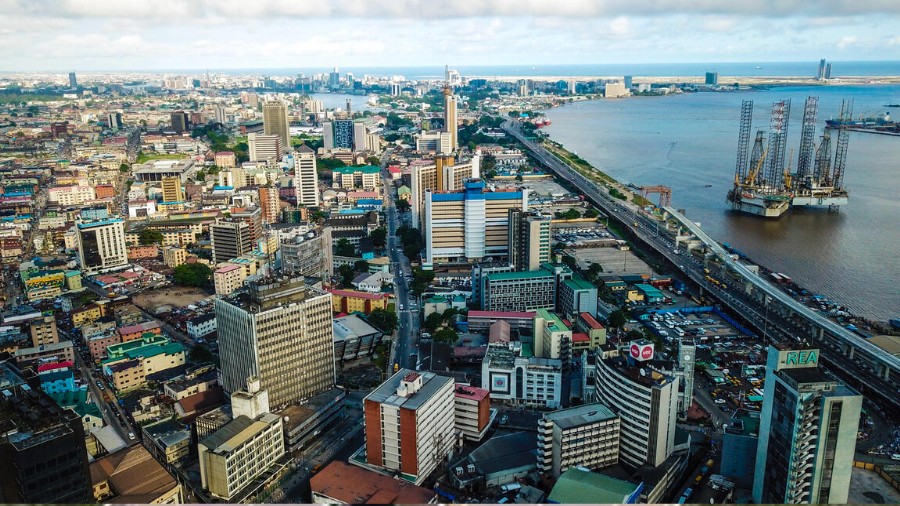Nigeria’s influence stretches far beyond its borders, shaping Africa’s politics, economy, and culture in profound ways. As the “Giant of Africa,” its leadership, booming industries, and global impact make for a compelling story of strength, ambition, and resilience.
Political & Military Leadership
Nigeria has long been a pillar of strength in Africa, playing a crucial role in peacekeeping efforts across the continent. Since gaining independence in 1960, the country has stepped up time and again to help its neighbors in times of crisis. Take Liberia and Sierra Leone, for example—two countries that endured brutal civil wars. Nigeria’s military didn’t just send a few troops; it contributed over 80% of ECOWAS Monitoring Group (ECOMOG) forces, helping to stabilize the region and prevent further bloodshed. It’s estimated that Nigerian efforts saved around 250,000 lives—talk about making an impact!
Nigeria also played an indispensable role in fighting against apartheid in South Africa. While many nations voiced their opposition, Nigeria actively supported the African National Congress (ANC) with political backing and financial assistance. Reports suggest that Nigeria contributed $61 million annually in the 1980s, proving its dedication to justice and equality. Even Nelson Mandela himself recognized Nigeria’s unwavering support, emphasizing that it would never be forgotten.

Beyond its past contributions, Nigeria’s military continues to be a major force in regional stability. In recent years, its fight against Boko Haram has led to the loss of nearly 70% of the terrorist group’s territory, making West Africa a safer place. The United Nations has acknowledged Nigeria’s efforts, solidifying its role as a leader in African security.
Whether it’s peacekeeping missions or global advocacy, Nigeria has consistently shown that it’s willing to stand up for what’s right—earning its reputation as one of Africa’s strongest leaders.
Economic Powerhouse
Nigeria isn’t just Africa’s most populous country—it also boasts the largest economy on the continent, valued at over $440 billion as of 2022. For decades, the country has been heavily reliant on crude oil, which accounts for about 90% of its export revenue. But Nigeria isn’t just sitting back and relying on oil; it has successfully diversified into industries like entertainment and technology, which are proving to be game-changers.
Nollywood, Nigeria’s booming film industry, is one of the largest in the world, producing over 2,500 films every year. Not only does it bring Nigerian stories to global audiences, but it also generates about $7.2 billion for the economy. That’s huge! Meanwhile, the tech sector is thriving, especially in fintech (financial technology). In 2021 alone, Nigerian startups attracted $1.6 billion in investments, proving that Africa’s Silicon Valley—Lagos—is becoming a major hub for innovation.
As Nigeria continues to expand its economy beyond oil, it is positioning itself as a leader in digital transformation. With a youthful population and a growing focus on entrepreneurship, Nigeria’s future in business and technology looks incredibly promising.
Cultural Influence & Diaspora Impact
Nigeria’s cultural footprint can be seen across the world, and its impact goes beyond its borders. From literature and music to fashion and film, Nigeria has given the world incredible talents like Wole Soyinka, Chimamanda Ngozi Adichie, and Burna Boy. Nollywood’s influence extends beyond Africa, with Nigerian films finding audiences in countries as far as the U.S., Brazil, and the UK.
But it’s not just entertainment—Nigerians in the diaspora are making waves across multiple sectors. In 2021, Nigerian migrants sent home over $25 billion in remittances, proving how vital the diaspora is to the nation’s economy. Nigerian-Americans are especially notable, excelling in science, education, and business. Even U.S. President Joe Biden has praised their contributions, recognizing them as a valuable part of the global workforce.
No matter where you go in the world, you’ll likely find a thriving Nigerian community, influencing everything from academic research to global pop culture. It’s a powerful testament to Nigeria’s widespread impact.
Challenges & Future Prospects
Despite all of its strengths, Nigeria faces challenges—one of the biggest being corruption. In 2022, Transparency International ranked Nigeria 150th out of 180 countries on its Corruption Perceptions Index, highlighting the need for reforms in governance and financial transparency.
Additionally, while Nigeria’s economy is growing, its reliance on crude oil remains a vulnerability. Oil price fluctuations can affect national revenue, which is why diversification is crucial for long-term stability. Fortunately, Nigeria is actively investing in sectors like technology and agriculture to ensure economic sustainability.
The International Monetary Fund (IMF) has projected Nigeria’s economy to grow by 2.6% in 2024, driven by innovation in non-oil industries. With world leaders recognizing Nigeria’s potential, the country is well-positioned to continue rising as a global powerhouse.
If Nigeria can successfully tackle corruption, create more opportunities for young entrepreneurs, and strengthen its leadership in international organizations, the future looks exceptionally bright. As former U.S. President Bill Clinton famously said, “Nigeria is a great country, blessed with enormous potential.” Indeed, the world is watching as Nigeria strides toward its destiny.
